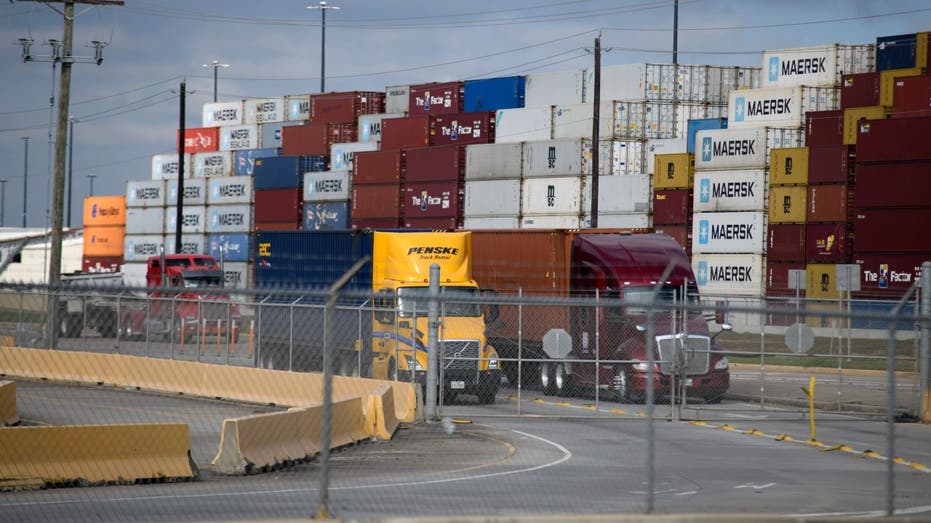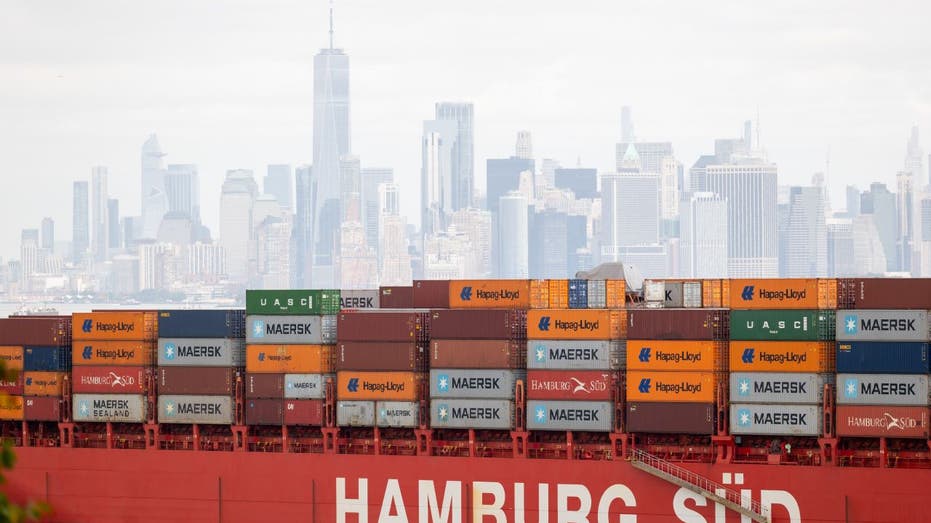How long will it take the supply chain to normalize after dockworkers strike?
Experts say it takes between five days to a week for the supply chain to normalize after the port strike
Port strike could have been a ‘much bigger issue’: Gerald Storch
Former Toys"R"Us CEO Gerald Storch joins ‘Cavuto: Coast to Coast’ to weigh in on the dockworkers’ tentative 90-day agreement.
Unionized dockworkers suspended their strike at East and Gulf Coast ports on Thursday night until mid-January, but it will take some time for impacted ports to return to their normal operations due to the backlog that accumulated during the strike.
The International Longshoremen's Association (ILA) and its roughly 45,000 dockworkers were on strike for roughly three days before they reached a tentative deal with the U.S. Maritime Alliance (USMX), which represents port employers. The deal, which will have to be ratified by both sides before Jan. 15, would see dockworkers' pay rise by 62% over the new contract though the two sides need to negotiate issues related to automation.
While negotiations play out, port operators and dockworkers will begin the process of dealing with the impact of the strike on East and Gulf Coast ports as they deal with backlogged cargoes – which will likely take several weeks before the supply chain returns to normal.
"More or less, we're looking at this as a 1-to-5 factor ratio, so for every one day of shutdown it takes five days of recovery," Douglas Kent, EVP of corporate and strategic alliances at the Association for Supply Chain Management (ASCM), told FOX Business in an interview prior to the strike.
DOCKWORKERS' UNION REACHES TENTATIVE AGREEMENT, WILL SUSPEND PORT STRIKE UNTIL JANUARY

Ports on the East and Gulf Coasts are reopened following the suspension of the ILA dockworkers strike. (Photographer: Mark Felix/Bloomberg via Getty Images / Getty Images)
Kent explained that the delays in offloading inbound cargo creates a ripple effect that "keeps going backwards down the chain and the interconnectivity of all of that – people who are producing products, people who are doing and managing the shipping of those, people who are storing goods and the warehouse availability."
"When it comes into the port, it's a multimodal transfer… it comes into the port, but then it's got to get on on rail and trucks," Kent explained. "When that activity is disrupted on the arrival side and our ability to clear those shipping vessels and unload those containers, it's also a knock-on effect to, 'well, I cleared it over here, but my trucks are sitting over here,' or 'I've got stuff ready to come in from Asia, but my containers are all sitting in backlog in the U.S.'"
"So a five-day recovery cycle and the knock-on effect of that, things not being in the right place in the right time, is a reality. And the severity of that just increases over time," he added. "There are so many interconnected players in that ecosystem that are not connected together, the re-planning for those effects is a very difficult thing to do."
KEVIN O'LEARY ADDRESSES 'THE TROUBLE' WITH US PORTS AND UNION AUTOMATION CONCERN

The East and Gulf Coast port strike impacted 36 seaports staffed by ILA dockworkers. (Photo by Kevin Dietsch/Getty Images / Getty Images)
Everstream Analytics offered a similar analysis of the strike's impact on the supply chain and wrote that, "With each day of the strike roughly needing about 1 week to clear the backlog, the 3-day all-out strike will likely take [a] minimum three weeks to return to normal operations at U.S. ports."
Everstream noted that the number of container ships waiting outside of East and Gulf Coast ports decreased overnight from a peak of 59 on Thursday to 54 as of Friday morning, as ships began to move into ports from anchorage areas in anticipation of container terminals reopening.

East and Gulf Coast ports will spend the next few weeks catching up on handling shipments after the dockworkers strike. (Photo by Spencer Platt/Getty Images / Getty Images)
GET FOX BUSINESS ON THE GO BY CLICKING HERE
It also added that some shippers which diverted to other ports outside the U.S., such as the Bahamas, will have to face the challenge of recovering those containers.




















